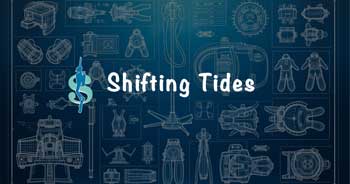How Long Does It Take To Become a Scuba Diving Instructor?
A better question would be how long it takes to become a dive instructor good enough to earn a living as a scuba diving professional.
This post is part of our Living The Scuba Dream series by the Business of Diving Institute and Darcy Kieran, author of:
There are many prerequisites to becoming a scuba diving instructor, including:
- a minimum of 100 logged dives
- up-to-date training in first aid and CPR
- be medically fit to dive
There is also a series of scuba diving courses you need to take before registering for your dive instructor training course.
Let’s look at the PADI curriculum of dive courses as an example. Other dive training agencies have a similar hierarchy of courses, even if the name of each course may slightly differ.
- PADI Open Water Diver Course: this leads to your entry-level scuba diving certification. It requires a few pool sessions and at least four open water dives. It can be done in as little as three days, but that would be a crash course.
- PADI Advanced Open Water Diver Course: this introduces you to different types of diving you haven’t done in the entry-level open water course. It comes with a requirement of at least 5 dives.
- PADI Rescue Diver Course: the title says it all! You learn to take care of yourself and your dive buddies. It is not a pro-level course. It is still a recreational scuba diving course. And a bit like in the case of the open water diver course, you could get that done in a few days, but a crash course may not be the best way to learn, especially if you want to become a dive professional.
- PADI Divemaster: it’s your first level of dive professional credentials. It can be done in a week, although many scuba divers do it gradually over a much longer period of time.
Regardless of how much time you spend on these courses listed as prerequisites to your scuba diving instructor training, they can all be easily done within six months. So why does it take at least six months to become a scuba diving instructor?
Within the prerequisites to the instructor development course, dive training agencies include a minimum time period since your entry-level open water diver certification: it’s six months. They also have a requirement of 100 dives, which is a lot more than the number of dives you will do as part of the required courses.
Therefore, if your goal is to become a dive instructor, do not worry about the time it takes to do the courses listed as prerequisites. Get these courses done, of course! But focus on:
- getting the most out of these prerequired courses instead of doing them fast
- everything else you should grasp to become a good dive instructor
Focus on mastering skills — not on checking off a list of courses to get done. Focus on learning and getting better, not on passing courses. That way, the fact that you have completed these scuba diving courses will become irrelevant to you. The question will be whether you have learned and mastered enough to be a safe dive instructor capable of providing an exceptional customer experience.
That is the approach you should maintain inside your dive instructor course as well.
In everything you do in the scuba diving instructor course, close your eyes and imagine doing it alone with your own students. That way, you will catch on to details you would miss if you only focused on what you need to succeed at the final dive instructor exam.
OK, but still, how long should it take me to become a good scuba diving instructor who can earn a living as a dive pro?
Once I started to dive, I was so into it that I rushed up the ladder. In my non-diving career, I was already providing training and coaching. I authored a book on public speaking. I trained and coached salespeople at my full-time job. So, I knew I enjoyed coaching and training. And I fell in love with the underwater world. So I went “all in.” It worked for me even though I rushed it, so it is possible to do it in a flash.
Yet, if I were to do it again, I would slow it down. After becoming a dive instructor, I had to catch up on skills I hadn’t practiced enough before becoming a dive instructor. Spending time with role-model instructors helped me a lot afterward. However, I would have felt better in my first year as a dive instructor if I had taken more time to get there.
That being said, I do not suggest you go to the other extreme and add years to your career plans. To a certain extent, time is actually not the most essential factor.
The people you dive with, the dive conditions in which you dive, your instructors on the various courses, and your instructor trainer all have a more significant impact than simply waiting one more year.
I had that discussion quite a few times with other dive professionals who advocate a longer timeline to become a dive instructor. The fact that you have been a diver for ten years doesn’t make you a good diver, especially if you always dived in the same environment with the same divers and with nobody as a good role model for you. On the other hand, a new diver could have made fantastic progress in six months with a kick-ass mentor and instructor.
Otherwise, you should spend time acquiring specialized skills like night diving. An instructor candidate can get to the instructor exam without having ever done a night dive. Or drift dive. And then, be thrown in the water for the first time at night, in the current, with client-divers. Ridiculous! It’s on you to make sure you have the required skills to be a diving professional. It’s your career.
You can judge how good (or not) your skills are by being honest with yourself. And then, you should get them validated by diving with a role model for whatever skills you are trying to master.
Another excellent way to evaluate yourself is by asking a friend to videotape you underwater while you demonstrate skills. You’ll be amazed at what you will notice when you see yourself doing it.
As an instructor trainer, I always added skill training sessions in the pool in all my dive instructor development courses because most scuba instructor candidates came with abysmal diving skills. Many of them could not hover! So, you wouldn’t be worse than anybody else. But you want to be a professional scuba diving instructor, not a clown, right?
Have a look at a list of critical scuba diving (underwater) skills and essential non-diving skills all dive instructors should master that I prepared for already certified scuba diving instructors. In the six months leading to the start of your dive instructor course, work on these skills. You won’t regret it!
If the information in this post was valuable to you, would you consider buying me a coffee?
Either way, I hope you make a good living out of your passion for scuba diving!
Your Dive Industry Compass
Scuba Diving Market Research, Surveys, Reports & Statistics
Shifting Tides
Strategies for Today’s Scuba Divers
Living The Scuba Dream
Plan Your Scuba Instructor Career & Deep Dive the Plan
You may also be interested in The Immersion Zone (our podcast), Scubanomics (our newsletter for dive professionals), and our published books & reference guides.





